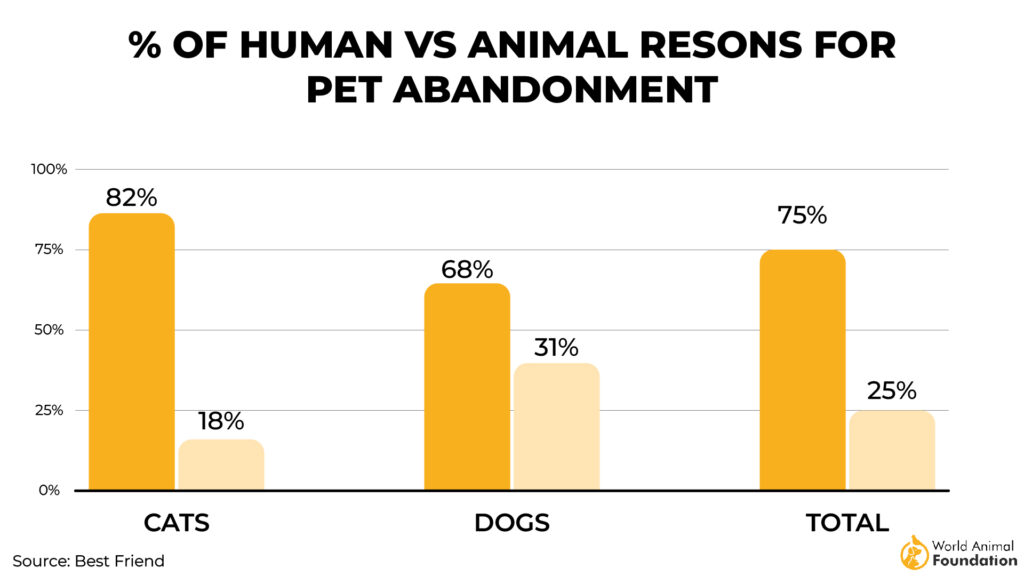Pet abandonment represents a profound social issue exacerbated by diverse cultural and economic factors. In the United States, laws governing pet abandonment vary significantly across state lines. Understanding the legal framework is essential for addressing the root causes of this phenomenon and for fostering responsible pet ownership.
At its core, pet abandonment occurs when an individual relinquishes their animal companion without seeking alternative placements or shelters. This abandonment may manifest through physical desertion of the animal in public spaces, but it can also involve more clandestine actions such as leaving pets outside of shelters without notifying the personnel. The legal ramifications of these acts differ depending on jurisdiction, with some states imposing stringent penalties while others have more lenient approaches.
Many states categorize pet abandonment as a form of animal cruelty. For example, in California, the legal framework defines abandonment as the intentional act of leaving a pet without providing for its care. The law mandates that abandoned animals must be reported and taken into custody by local animal control agencies. If a pet parent fails to report an abandoned animal, they may face misdemeanor charges resulting in fines or possible confinement. This legal interpretation underscores the gravity of abandoning an animal and its broader implications for public health and safety.
Moving eastward, laws in New York similarly reflect a robust stance against pet abandonment. The state penalizes abandonment with a combination of civil and criminal repercussions. New York Statute clearly delineates the responsibilities of pet owners, emphasizing that failure to provide adequate care and oversight constitutes neglect. Moreover, the statute mandates specific reporting practices for abandoned animals to ensure their welfare and potential rehoming. Thus, New York constructs a dual legal approach, weaving together punitive measures and preventive care.
However, not all states approach pet abandonment with uniform strictness. In some regions, the lack of specific legislation addressing abandonment may lead to a legal gray area. For instance, in states like Wyoming or South Dakota, the absence of defined laws can present challenges for animal advocates seeking to address abandonment proactively. Here, public awareness campaigns may play a crucial role in fostering a culture of responsibility among pet owners. Education can be as powerful as legislation, providing vital insights into the ethical implications of pet ownership and the expectations that accompany it.
Beyond legal frameworks, a deeper inquiry into the motivations and social dynamics of pet abandonment reveals salient themes. Economic instability often stands out as a prominent catalyst. Families grappling with financial hardship may find it increasingly unfeasible to care for their pets. This trend underscores a significant lapse in the societal safety net for both humans and animals alike. For instance, during economic downturns or crises, animal shelters often report spikes in abandonment rates, reflecting the intertwined fates of humans and their animal companions. It is crucial to address these underlying economic causes alongside legal repercussions.
Moreover, transient living situations can exacerbate the abandonment issue. In an increasingly mobile society, where individuals relocate frequently for employment or personal reasons, the logistics of pet ownership can become cumbersome. Rather than seeking alternatives such as rehoming, some individuals may abandon their pets, viewing them as an impediment to their adaptability. This transient lifestyle, often accompanied by a lack of awareness regarding the responsibilities of pet ownership, highlights the necessity for comprehensive educational initiatives aimed at potential pet owners.
Social stigmas also permeate the conversation about pet abandonment. In certain communities, stereotypes surrounding pet ownership can create an environment where abandoning a pet is viewed as a more acceptable option than seeking help. Addressing this cultural narrative is imperative. Collaborative efforts between local governments, shelters, and community organizations can work toward reshaping perceptions surrounding pet abandonment. By promoting responsible pet ownership and supporting individuals through financial assistance programs and resources, communities can build a more compassionate society for animals.
Prevention strategies must also extend to veterinary support. Many pet owners may abandon their animals due to prohibitive veterinary costs. Legislative measures that incentivize affordable veterinary care, combined with low-cost spay/neuter initiatives, can significantly mitigate the incidence of abandonment. Preventative healthcare is an essential aspect of responsible pet ownership, and implementing laws that support accessible veterinary care can help reduce the economic barriers faced by pet owners.
In conclusion, the laws surrounding pet abandonment in the U.S. are indicative of a broader societal challenge that straddles legal, economic, and cultural domains. By examining the intricate web of legal frameworks, examining the economic realities faced by pet owners, and addressing the social stigmas surrounding pet ownership, stakeholders can devise comprehensive strategies to combat pet abandonment. Ultimately, fostering a culture of responsibility and advocacy will ensure that animals receive the care and protection they rightfully deserve. A multi-faceted approach is necessary—one that marries legal accountability with educational initiatives, economic support, and a shift in societal attitudes toward pet ownership. Embracing these principles will contribute to a future where pets are viewed as cherished companions rather than disposable entities.








